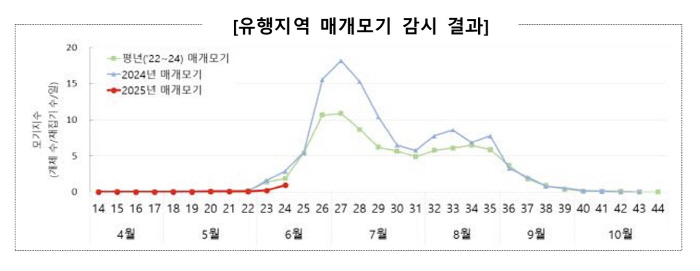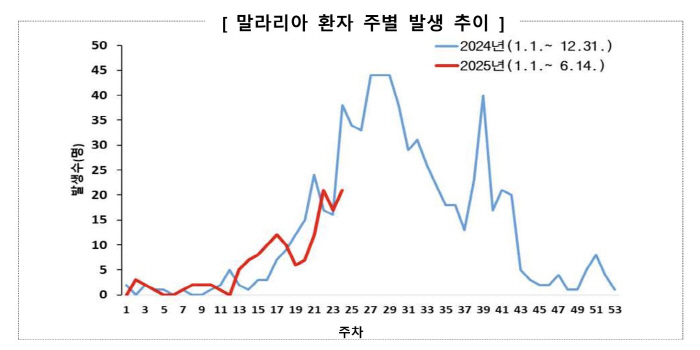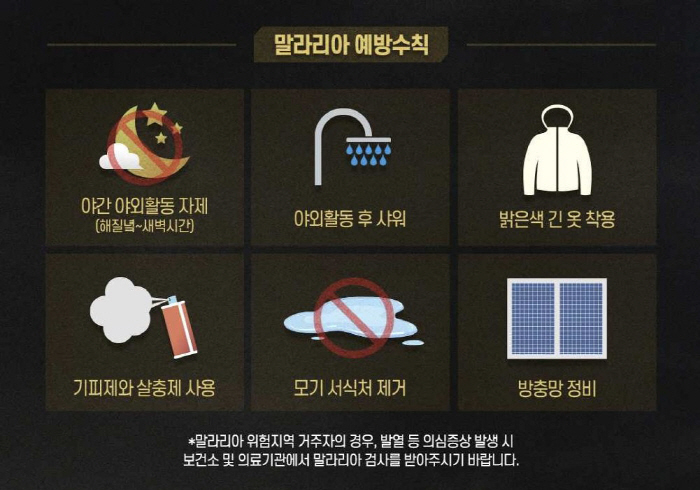Malaria alert issued...Why is it a week later than last year?
|
The Korea Centers for Disease Control and Prevention, which annually investigates the occurrence of mosquitoes in malaria-risk areas such as Seoul, Incheon, Gyeonggi, and Gangwon, issued a malaria warning as the number of mosquitoes increased in the 24th week of this year (June 8-14). As a result of monitoring the density of mosquitoes in the 24th week at 69 investigation points in the malaria risk area, more than three monitoring points with an average daily mortgage rate of 0.5 or higher were Cheorwon-gun (0.9), Paju-si (0.8), and Hwacheon-gun (0.6), which met the criteria for issuing malaria warnings.
In the case of last year, malaria-mediated mosquito density reached the issuance criteria at 23 weeks, but this year it met the issuance criteria one week later than the previous year. This is believed to be because the national average temperature in May was 16.8℃, 0.5℃ lower than the average year and 0.9℃ lower than the previous year, reducing the occurrence of mosquitoes.
|
Director Ji Young-mi said, `Since malaria-borne mosquitoes are expected to increase gradually before and after the rainy season, please strengthen the control of mosquitoes in malaria-prone areas and follow mosquito bite prevention rules.' He stressed that visitors and residents who engage in nighttime activities in malaria-prone areas should be examined at nearby health centers and medical institutions if symptoms such as fever appear.'
|
In Korea, outdoor activities are refrained as much as possible at night (right after sunset to just before sunrise) from April to October when mosquitoes are actively active. When going out at night, wear bright long sleeves and long pants, and spray mosquito repellent every three to four hours to avoid mosquito bites around your face. Use insect screen maintenance and mosquito nets to prevent mosquito invasion, and use indoor pesticides appropriately. In addition, if you live in a malaria-risk area, travel, or have suspicious symptoms (chills, high fever, and sweating repeated every 48 hours, accompanied by headaches, vomiting, and diarrhea), you should visit a nearby medical institution for treatment.
Meanwhile, Korea is a priority malaria eradication country designated by the World Health Organization (WHO).
This article was translated by Naver AI translator.






